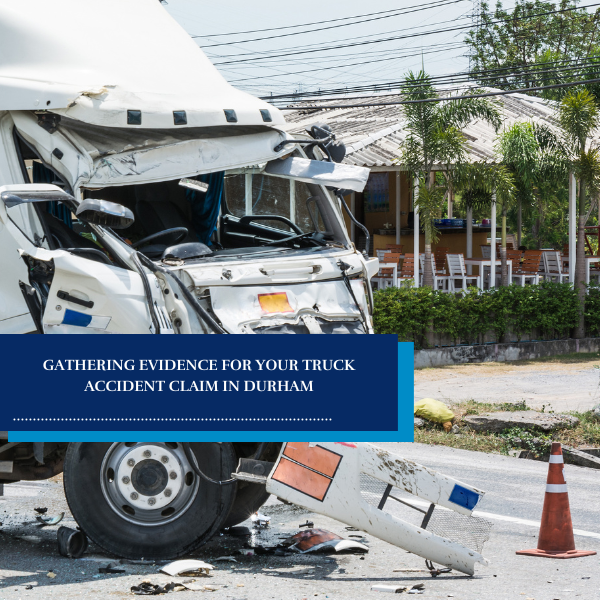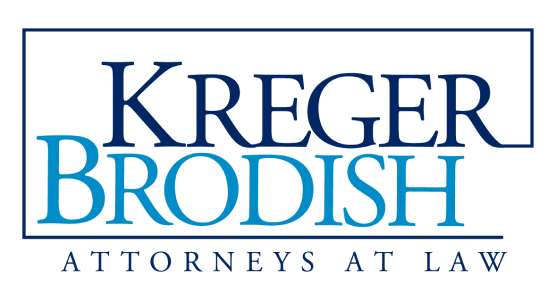
If you were recently injured in an accident involving a large truck, you should seek help from an experienced truck accident lawyer as soon as possible. When these crashes happen, trucking companies and insurance companies move quickly to protect their financial interests. Your lawyer can move quickly, too, and take immediate steps to protect your rights.
At Kreger Brodish LLP, we have over a decade of experience handling truck accident claims and other catastrophic injury cases in Durham and throughout North Carolina. We know the importance of taking timely action, including moving quickly to preserve and gather evidence for your truck accident case.
To learn more about our experience helping victims of truck accidents, contact us today. We can provide a free consultation.
Types of Truck Accident Evidence in Personal Injury Cases
When compared to other types of motor vehicle accident cases, a truck accident claim involves a large amount of evidence. Some of the different types of evidence which your lawyer may gather include:
Evidence from the Truck and Truck Driver
- Black box data — Like a black box from an airplane, the electronic logging device (ELD) from a tractor-trailer can provide key data, such as the truck’s speed, which helps to identify the cause of the crash.
- In-cab camera and dashcam footage — Most truck cabs have cameras that capture what happened in front of the truck (such as following too closely) or inside the cab (such as the driver texting).
- Maintenance and inspection records — Truckers and trucking companies must regularly inspect their vehicles and trailers, keep them in safe condition, and make repairs to fix issues.
- Logbooks — Truck drivers must record their hours to show they are complying with the Federal Motor Carrier Safety Administration (FMCSA) hours-of-service rules and not driving when too fatigued.
- Cell phone records — These records can show if the truck driver was talking on the phone, texting, or using the Internet instead of focusing on the road.
- Alcohol and drug test results — Breath, blood, and urine test results can show if the driver’s physical and mental ability to safely operate the 18-wheeler was impaired by alcohol or drug use.
- Driving records — A review of a driver’s records may show traffic tickets, FMCSA violations, impaired driving, or other bad conduct.
Evidence from the Scene
- Physical evidence — Your vehicle, the tractor-trailer, and any other vehicles involved in the crash can contain key evidence. For example, an inspection may reveal that a truck had faulty brakes.
- Eyewitness statements — Motorists and bystanders can describe what they saw (such as a driver running a light), heard (such as brakes or a horn), and smelled (such as alcohol on the truck driver’s breath).
- Photos and surveillance video — Photos showing vehicle damage, tire marks, location, lighting, weather conditions, and other information can help tell the story of what occurred.
Evidence of Damages
- Medical bills and related expenses — Medical bills and records can establish the extent of your injuries and how they were caused by the accident. Receipts can establish other expenses caused by the crash.
- Pay stubs — Due to a temporary or permanent disability caused by the accident, you may be unable to work for an extended period of time or, perhaps, return to work at all. You may be eligible to recover for loss of salary, bonuses, commissions, and other income.
How to Gather Evidence After Truck Crashes
Trucking companies, insurance companies, and others who face potential liability after a truck accident will typically send investigators to the crash scene as soon as they learn of it. The risk of evidence getting removed, lost, or destroyed runs high. If you were hurt in a collision with a tractor-trailer, your lawyer can take immediate steps such as:
- Sending investigators, engineers, and other experts to the crash scene.
- Notifying all potentially responsible parties that they must preserve all evidence from the crash, including black box data, the truck, and its contents.
- Filing any legal paperwork necessary to ensure the evidence is preserved and made available according to the law.
Often, the truck driver is not the only at-fault party. The trucking company, shipping broker, loading company, truck manufacturer, or others may share the blame for the crash. This is why it is important to work with a Durham truck accident lawyer who will know how to identify and seek evidence from all potentially responsible parties.
Role of Expert Witnesses in Truck Accident Cases
Typically, a truck accident attorney must consult with trained, knowledgeable professionals in different fields about the facts of the case. These experts can help to establish liability and damages.
For instance, an accident reconstruction expert can help establish liability by gathering and analyzing all evidence from the accident and determining how it occurred. To establish damages, an expert in vocational rehabilitation can review your medical and work records and assess the impact of your injuries on your ability to work and earn a living.
Statute of Limitations in North Carolina Trucking Accident Claims
Another reason why you should seek legal help without delay after a truck accident is the statute of limitations for personal injury and wrongful death claims. Under these laws, you must file a claim within a specified period. If you do not, you lose your right to seek compensation.
In North Carolina, you must file a personal injury claim within three years of the date of your injury, or the date of the truck accident. If your loved one died in a trucking accident in North Carolina, you must file a wrongful death claim within two years of the date of the death.
Contact Our Durham Truck Accident Lawyers to Learn More
At Kreger Brodish LLP, we can use our experience collecting evidence and documentation for truck accident claims to help you recover. We know how important it is to have a thoroughly investigated, highly prepared case when fighting for our clients’ rights at the negotiation table and in the courtroom. We’re ready to seek the compensation you deserve. Contact us now to get started with a free consultation.






